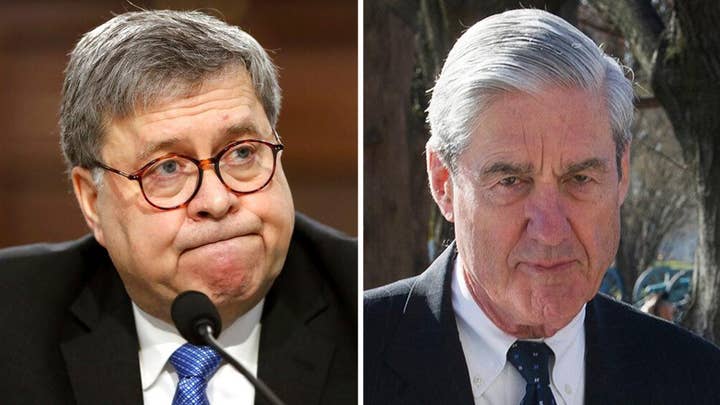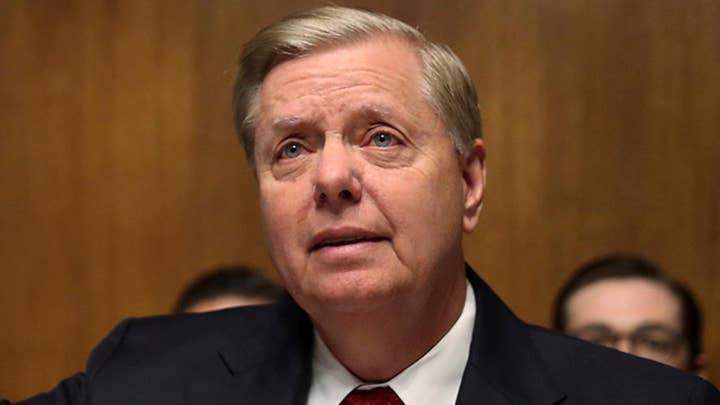Barr questioned on why Trump's direction to McGahn on Mueller does not amount to obstruction of justice
Sen. Dianne Feinstein questions Attorney General Bill Barr on why he believes the president's alleged direction to have the special counsel removed cannot be proven as obstruction beyond a reasonable doubt.
The top ranking Democrat on the Senate Judiciary Committee sparred with Attorney General William Barr on Wednesday over President Trump’s alleged efforts to remove Special Counsel Robert Mueller from the investigation into Russian interference in the 2016 election and whether or not Trump’s actions constituted obstruction of justice.
Sen. Dianne Feinstein, D-Calif., and Barr went back and forth on whether or not the president engaged in obstruction by allegedly asking former White House Counsel Don McGahn twice to remove Mueller from his post and then directing McGahn to deny a "New York Times" report on the matter.
“The special counsel in his report found substantial evidence that the president tried to change McGahn’s in order to prevent, and this is a quote, ‘further scrutiny of the president toward the investigation,’” Feinstein said during Barr’s testimony. “The special counsel also found McGahn is a credible witness with no motives to lie or exaggerate, so what I’m asking you then is that a credible charge under the obstruction statute?”
TRUMP RAILS AGAINST ASSOCIATES WHO SPOKE TO MUELLER, CALLS CLAIMS 'TOTAL BULL---T'
Barr, who after receiving Mueller’s report opted not to bring obstruction charges against the president, argued that there is a nuance to what occurred between Trump and McGahn and that the government would not be able to establish evidence for obstruction.
“We felt at that episode, the government would not be able to establish obstruction,” Barr said. “If you go back and look at the episode where the president gave McGahn an instruction, McGahn’s version of that is quite clear.”
Barr added: “The instruction said ‘go to [Deputy Attorney General Rod] Rosenstein, raise the issue of conflict of interest, and Mueller has to go because of this conflict of interest.”
“You still have a situation where a president essentially tries to change the lawyer's account in order to prevent further criticism of himself,” Feinstein said.
Barr retorted: "Well, that's not a crime."
He added: “There is a distinction between someone saying ‘go fire him, go fire Mueller’ and saying ‘go have him removed because of conflict of interest.”
In a redacted version of the Mueller report, which was made public April 18, Trump told McGahn in June 2017 to inform Rosenstein that Mueller had to be fired "based on purported conflicts of interest, but McGahn had refused, saying he would quit instead." The report added that Trump and McGahn spoke about the matter on Feb. 6, 2018, days after "The New York Times" reported on Trump's demand.
CLICK HERE TO GET THE FOX NEWS APP
According to the report: "The President asked McGahn, 'Did I say the word "fire"?' McGahn responded, 'What you said is, "Call Rod [Rosenstein], tell Rod that Mueller has conflicts and can't be the Special Counsel."' The President responded, 'I never said that.'"
Later in the conversation, according to the report, Trump asked McGahn if he would correct the Times article "and McGahn said no."
McGahn, who stepped down as White House counsel in October 2018, was interviewed five times by Mueller’s team between November 2017 and February of this year.
Fox News’ Samuel Chamberlain contributed to this report.















































